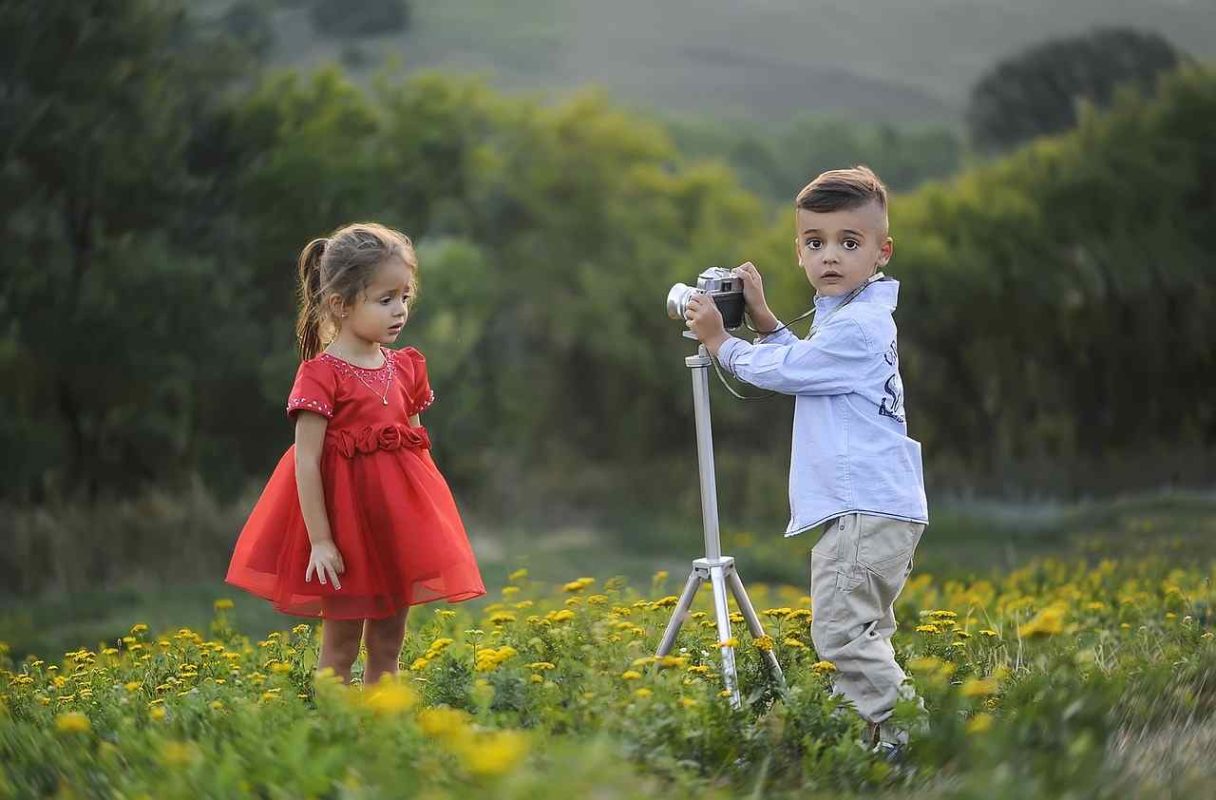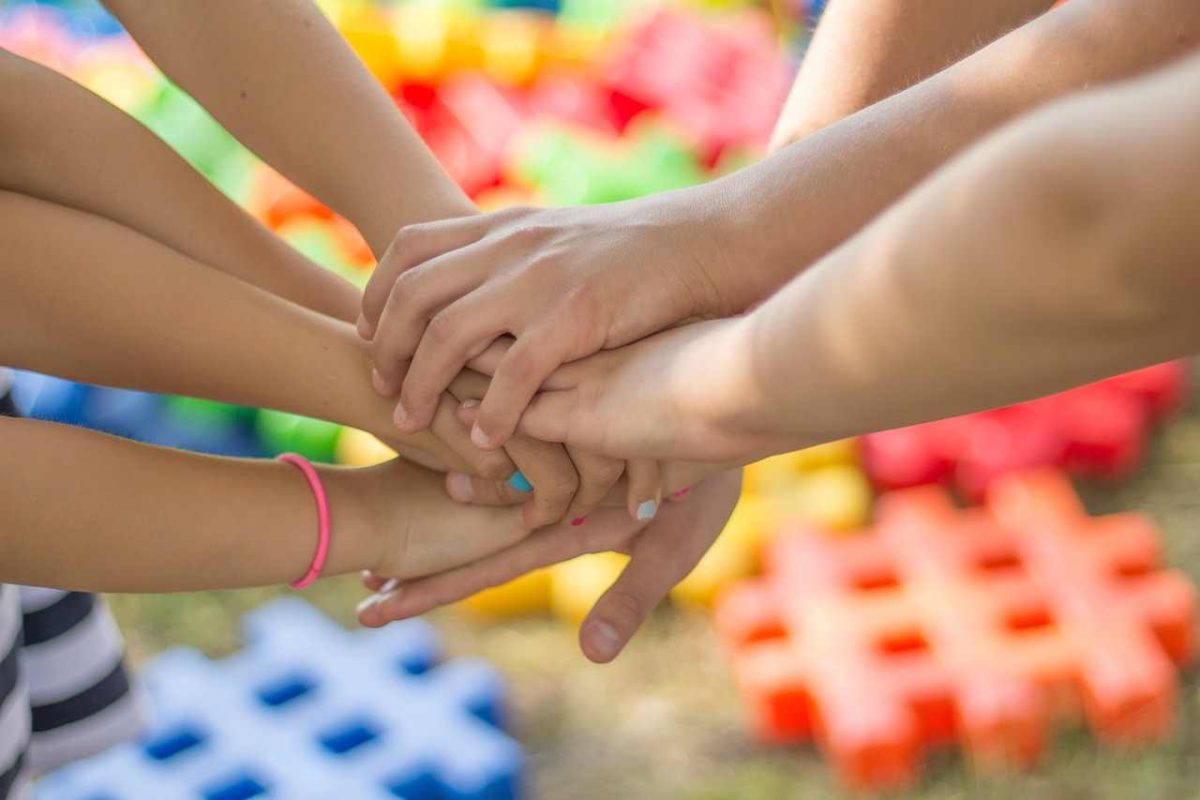Child Development
Understanding the Importance of Early Childhood Development: Why It Matters
Table of Contents
Introduction
Early childhood development refers to the physical, cognitive, social, and emotional growth that occurs during the most rapid period of human development, from birth to around age 8. This critical phase lays the foundation for lifelong well-being and success.
The importance of early childhood development cannot be overstated. A child’s experiences and environment during the early years have an enormous impact that persists throughout life. Positive, nurturing environments and interactions build a strong basis for future learning, behavior, health, and relationships. On the other hand, significant adversity early in life can impair development.
This article provides an overview of the widespread, long-term impacts of early childhood development and why supporting children’s growth during the early years is crucial for unlocking their full potential.
What is Early Childhood Development?
Early childhood development encompasses several domains:
- Physical development – growth, motor skills, brain maturation
- Cognitive development – learning, information processing, problem-solving
- Social and emotional development – self-awareness, relationships, regulating emotions
- Language and communication development – speech, vocabulary, comprehending and expressing language
The first 5 years are especially important, as a child’s brain develops rapidly during this period. Early childhood spans a phase of tremendous growth and vulnerability.

The Lifelong Significance
Experiences and relationships during a child’s first 5 years affect the architecture of the maturing brain. This provides the foundation for cognitive abilities, emotional well-being, and social skills.
Early childhood development sets the stage for who we become and how we thrive across the rest of our lives. The implications are substantial, from school readiness and educational attainment to mental and physical health, relationships, economic participation, and life satisfaction.
Lifelong Impact of Early Experiences
Brain Development
- The first few years are a period of rapid brain development.
- Early experiences shape the neural connections and pathways that influence cognition, language, emotions, behavior, and stress response systems.
- Positive early experiences strengthen neural connections in areas tied to learning, reasoning, problem-solving, and self-regulation. This builds resilience.
- On the other hand, chronic stress and lack of stimulation weaken systems involved in memory, concentration, and behavior control.
Developing Motor Skills and Coordination
- Early childhood marks great strides in gross motor skills like sitting, crawling, walking, jumping, and running.
- Fine motor skills also develop dramatically – grasping, hand-eye coordination, manipulating objects.
- Mastering physical and motor abilities provides confidence and cognitive stimulation through interaction with the environment.
Building Relationships and Communication
- Forming secure attachments and positive relationships with parents and caregivers provides an emotional foundation.
- Back-and-forth communication teaches interaction and language – essential skills for relationships and school readiness.
Cultivating Emotional Intelligence
- Children begin recognizing their own and others’ emotions and building skills to manage feelings and behavior.
- Emotional intelligence contributes to empathy, social competence, resilience, and adapting to school.
Enhancing Learning Potential and Cognitive Abilities
- Early childhood includes great cognitive gains through information processing, reasoning, problem-solving, memory, and perception.
- Nurturing care and exposure to learning experiences stimulate neural connections that support continued cognitive development.
Language Acquisition and Cognitive Skills
- Children rapidly develop receptive language skills (understanding) and expressive language abilities (speaking).
- Communication and vocabulary give meaning to experiences and fuel cognitive advancement.
- Early language fundamentals support literacy, academic achievement, and abstract thought.

The Role of Early Experiences
Both positive and negative experiences substantially sway development, with lifelong repercussions.
Positive Experiences Provide Strong Foundations
Positive early experiences establish solid foundations for healthy development.
- Responsive, nurturing environments where children feel safe and secure support social-emotional health. Positive interactions spur cognitive, communication, and relationship skills.
- Educational stimulation through interactive reading, conversations, games, and exposure to new experiences promotes cognitive capacities.
Early positive experiences have lasting impacts:
- Builds sturdier brain architecture and resilience
- Enhances learning capacities and school readiness
- Develops social, emotional, and behavioral competence
- Instills confidence, coping abilities, and motivation to learn
Adverse Experiences Disrupt Developmental Trajectories
On the other hand, research shows that significant adversity has detrimental, sustained effects.
- Toxic stress from abuse, neglect, and household dysfunction damages developing brain architecture.
- Adverse childhood experiences (ACEs) like trauma or unstable caregiving impede cognitive abilities, coping skills, and relationship building.
- Consequences include impaired learning, mental and physical health issues, and increased risk behaviors.
Protective factors like nurturing relationships can buffer negative impacts. However, intensely adverse experiences without adequate support alter brain structure and functioning.
Building Blocks for Lifelong Success
The interactive influences of genetics and early experiences establish either sturdy or fragile foundations for ongoing development.
Early Academics Prepare Children for Educational Achievement
- Early literacy and numeracy – learning about letters, words, numbers, patterns – provides critical school readiness skills.
- Mastering basic academic concepts in the early years makes further learning easier. Children fall behind early without these competencies.
Developing Problem-Solving and Critical Thinking
- Young children build capacities for reasoning, understanding cause and effect, and making judgments.
- Problem-solving and critical thinking give children tools to extract meaning from the world and apply knowledge creatively.
- These transferable competencies underlie innovation, analysis, evaluation, and higher-order thinking.
Economic Participation and Career Trajectories
Early child development influences trajectories across the life course, including economic productivity.
- Capacities forged in early childhood enable academic and career success. Children well-prepared for school have greater opportunities later in life.
- On the other hand, those lagging behind their peers early on face steeper challenges. Gaps only widen.
- Early childhood development promotes equal opportunities for achievement and upward mobility.
Why Early Childhood Education Matters
High-quality early childhood education programs enhance development during these vital years.
Enriching Cognitive and Social Skills Before School
- Stimulating, play-based environments advance cognitive capacities, social skills, motor skills, and emotional maturity.
- Children gain essential prerequisite abilities for transitioning into school.
Benefits include:
- Better academic performance in early grades and beyond
- Higher IQ and improved cognitive abilities
- Greater likelihood of healthier relationships and avoidance of high-risk behaviors
- Decreased need for special education or grade repetition
- Increased high school graduation and college attendance rates
- Higher adult income and educational attainment
Providing Equitable Early Learning Opportunities
Early education programs help narrow achievement gaps and interrupt intergenerational poverty cycles.
- Children from disadvantaged backgrounds often start school well behind their peers. High-quality early education helps close this gap.
- Promoting enriched environments for all children, especially those at risk, is crucial for equal opportunities.
Creating Supportive Environments
Children’s development depends on warm, responsive relationships and communities.
Parents as First and Most Important Teachers
A child’s brain architecture is built through interactive experiences with caring adults. Responsive parents and caregivers provide the most important relationships.
- Early bonds shape neural pathways and social-emotional health. Positive parenting practices like talking, reading, singing, and playing promote development across all domains.
- Stable, nurturing relationships buffer children from stress. Protective factors help build resilience.
Communities Supporting Children and Families
- Public health programs like prenatal care, nutrition guidance, home visits, parent education classes support early childhood development.
- Policies, like paid parental leave, childcare assistance, and income support, alleviate family stress and promote stability.
- Coordinated efforts across education, health, and social services systems optimize early childhood development.

The Vital Role of Play
Play enhances physical, cognitive, social, and emotional competencies. It is essential for early learning and development.
Play Builds Children’s Abilities
- Symbolic play like pretending, inventing scenarios, role-playing builds imagination, creativity, and abstract thought.
- Exploratory play teaches cause-and-effect, problem-solving, turn-taking, and understanding feelings.
- Physical/motor play develops coordination, balance, strength, and perceptual skills.
Developing Socially and Emotionally through Play
Play provides a window into children’s social and emotional lives.
- Peer interaction teaches cooperation, empathy, compromise, sharing, and conflict resolution.
- Pretend play allows experimenting with emotions and working through fears, worries, and events children find confusing.
- Play fosters self-awareness, self-regulation, and coping strategies.
Neuroscience Reveals Early Brain Development
Advances in neuroscience underscore the profound implications of early childhood.
Brain Plasticity and Sensitive Periods for Learning
- The brain rapidly forms new neural connections during early sensitive periods, making it highly “plastic” and primed for learning.
- Language acquisition, for example, is especially sensitive to environmental input between birth to age 3.
How Experiences Shape Brain Architecture
- Positive early stimulation strengthens neural pathways in areas tied to learning, memory, stress tolerance, and self-control.
- Adverse experiences weaken architecture in parts of the brain dedicated to memory, decision-making, and emotional control.
- Neural pathways solidify around experiences during early sensitive periods.
Global Significance
Supporting early childhood development worldwide improves lives and fuels sustainable growth.
- Child health and nutrition provide the preconditions for early learning and growth.
- Globally, around 250 million children under age 5 are at risk of suboptimal development due to poverty, malnutrition, and inadequate care.
- UNICEF leads international efforts to promote early childhood development through policies, programs, and partnerships. Progress requires cross-sector collaboration.
- All cultures have distinct childrearing practices. Programs should provide culturally attuned support while addressing developmental principles.
Conclusion: Investing in Early Childhood Pays Off
The evidence is clear – early childhood provides the scaffolding for the rest of the lifespan. Supporting children’s development early on is the most powerful investment we can make.
Key Takeaways
- Early childhood sets the trajectory across physical, cognitive, social, and emotional domains
- Nurturing, stable environments stimulate abilities essential for growth and learning
- Adversities have detrimental impacts on development with lifelong effects
- High-quality early childhood education enhances readiness and narrows achievement gaps
- Global initiatives promote nurturing care worldwide
A Vision for the Future
With a commitment to early childhood development, we can build a more just, prosperous, and sustainable world. Our children have immense potential. Unlocking the power of their early years is key to creating thriving, empowered adults, families, and communities. The time for action is now.
FAQs
What is early childhood development?
Early childhood development refers to the physical, cognitive, social, and emotional growth that occurs during the most rapid period of development in a human lifespan, from birth to around age 8. It encompasses growth across several domains including motor skills, brain development, language, conceptual understanding, socialization, and emotional regulation.
Why is early childhood development important?
Early childhood is a crucial period that establishes the foundation for lifelong learning, behavior, health and wellbeing. Positive early experiences build sturdy brain architecture and lead to better developmental outcomes. Supporting children’s early development has widespread benefits for individuals and societies.
How does early childhood development affect lifelong learning?
The neural connections and pathways formed during early sensitive periods provide the scaffolding for continued cognitive development. Early language, literacy, numeracy and problem-solving competencies prepare children for educational success. Enriched environments stimulate abilities like memory, concentration, critical thinking and motivation to learn. Children lacking positive early stimulation often struggle academically.
What are the key aspects of cognitive development in early childhood?
Critical cognitive gains occur through developing skills like cause-and-effect understanding, symbolic thought, perspective taking, language and communication, processing information, attentional control and memory. Play and exploration encourage cognitive advancement. Nurturing relationships and stimulation are vital for cognitive growth.
How does early childhood development impact social skills?
Early experiences shape attachment, emotional regulation and social interaction abilities. Secure relationships foster confidence, empathy and cooperation. Through communication and play, young children learn turn-taking, sharing, negotiation and conflict resolution. Positive social-emotional growth contributes to school adjustment, relationships and wellbeing throughout life.
References
Child development key stages & insights
World Health Organization. (2020). Early Child Development – Transforming the Future.

